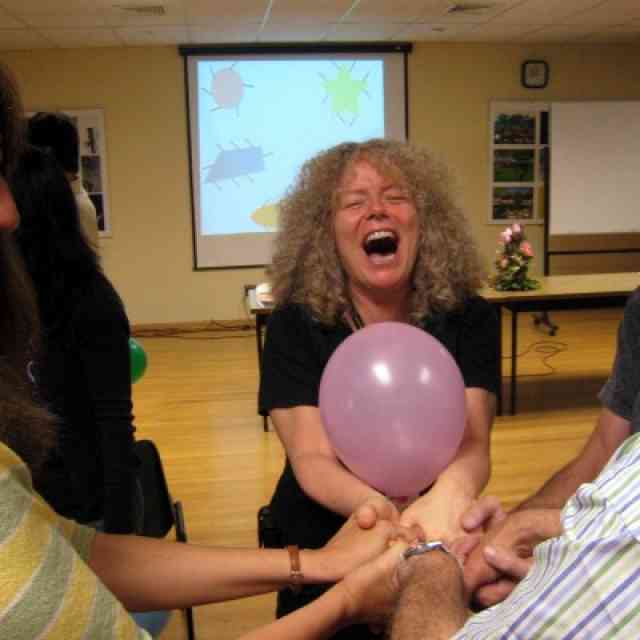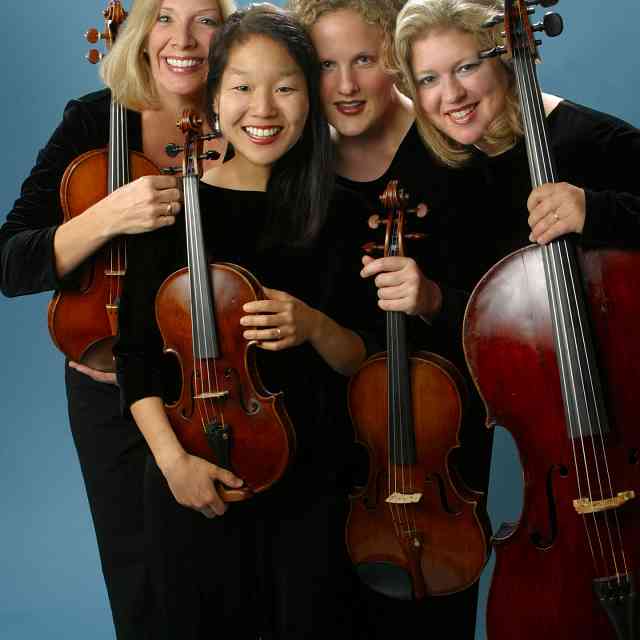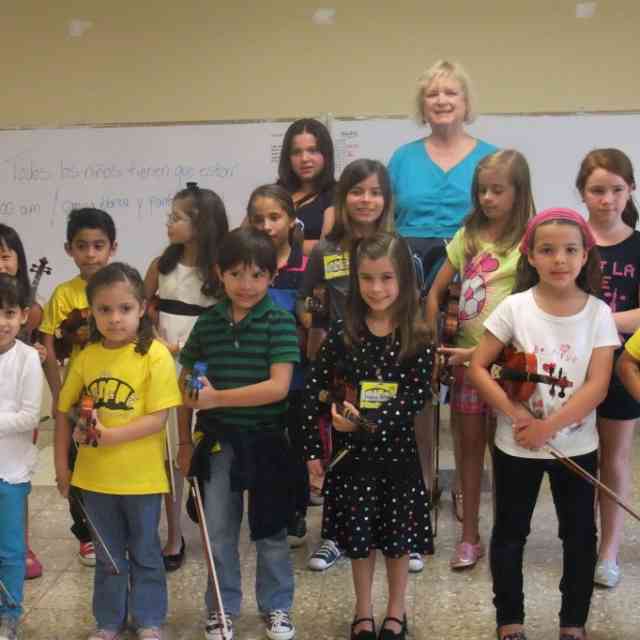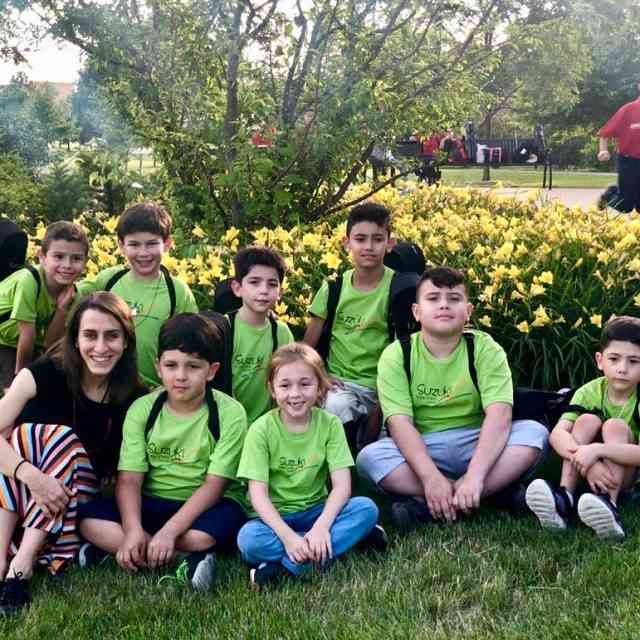This was my second time at the Festival, at the invitation of Lidia Blanco, President of the Costa Rica Suzuki Society I had met Lidia for the first time at the Latin Suzuki Festival in Peru and then again at the International Suzuki Conference in Torino, Italy. We had become amigas bound together by the love and magic of teaching with the Suzuki Method.
The Festival, only in its second year, was a phenomenal success. More than 90 students registered for violin, viola and cello classes. The Festival brought in clinicians from Costa Rica, Peru, El Salvador, Canada and the US. The event took place in Moravia, a pretty suburb of San José. Clinicians were housed either at a charming casa de monjas (nunnery) just around the corner from the Bible Institute or with families. I stayed for the second year in a row with a family that has now become like my own, the Ortega Saborios. Their daughters Giulie and Paola have studied violin with Lidia for several years.
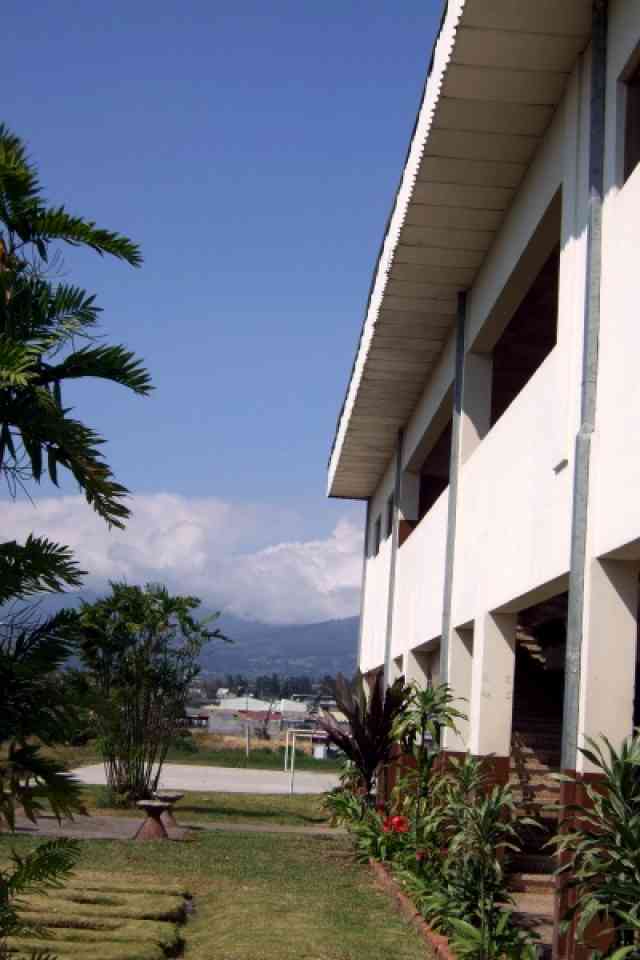
Bible Institute.
The Bible Institute is an older two story building offering a breathtaking vista of the city and mountains surrounding San José. On weekdays Festival classes took place at the school. A tiny snack bar with a few tables offered meals, pastries and Costa Rica’s famous coffee. It was a great a place to meet and get to know one another.
For weekend classes and events, we shifted to the new modern campus of Lincoln School a few miles away. The final Concert took place in the luxurious Eugene O’Neill Theatre at the Costa Rican and North American Cultural Centre in San José.
I had brought the Komars, father and two sons along with me from Canada. Steve Komar is my studio accompanist. His sons are long time Suzuki students. Jeffrey plays violin at the Book 10 level, and Thomas is a Book 4 violist and flutist. They are also all members of my “Viva!” youth troupe in Calgary.
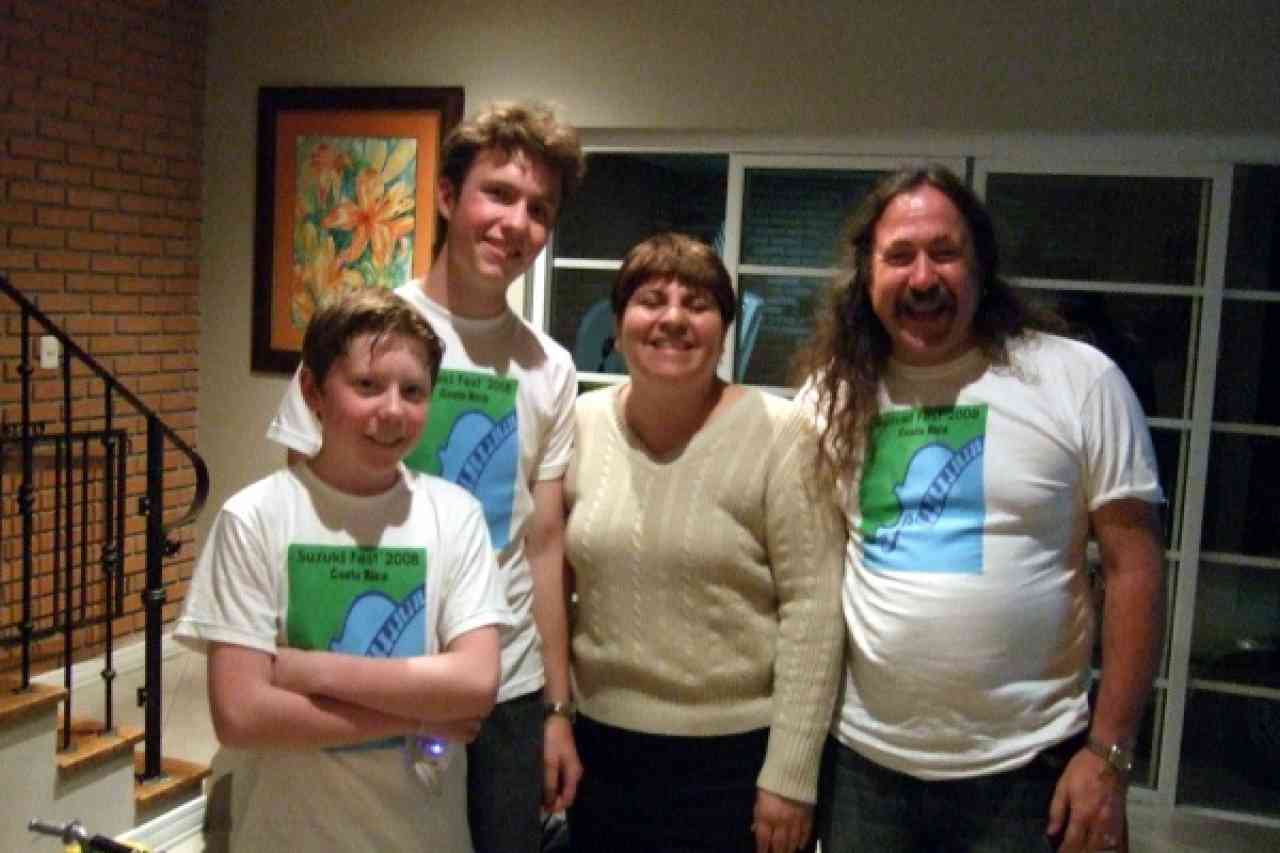
Thomas, Jeffrey, Shirley, and Steve.
Friday, February 1, saw us registering at the Festival. There we met Lidia’s amazing helpers, Marietta, Ana Cecilia, Carmen, Shirley and other ladies. Besides handling registration they watched over a variety of books and teaching materials, sold official T-shirts, and offered home baked cookies and delights. They made sure teachers had water or had rides when needed. Friday’s activities included a lively play-in. After the play-in, we went to a wonderful seafood restaurant and then explored Moravia’s colorful Calle de Artesanias where you can find exquisite arts, crafts, tapestries and wood work.
Saturday, February 2, continued with student registration and group classes. This was followed by an informative talk by noted San José psychologist, Ana Yee Estrada. She spoke about the development of children’s self-esteem and how it relates to the success of the Suzuki Method. Parental support and guidance, reinforcement of self value, humor and affection, these and other principles apply to any learning situation. Mrs. Yee’s counsel can be summed up in her little bookmark: “I am accepted, I am understood, I am loved. I am who I am!”
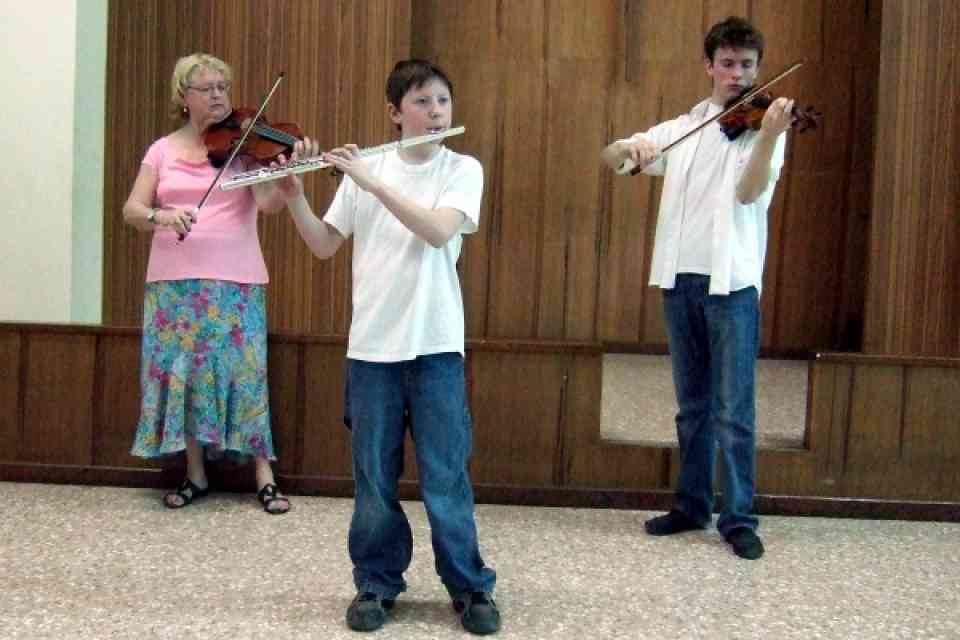
Carmen, Thomas, and Jeffrey playing “Child of the Poor.”
After a free day on Sunday Monday saw us all at work at full strength. Caroline Fraser, Director of the Latin Suzuki Festival, Lima, Peru, had a full schedule of classes. She taught Suzuki Philosophy, a special and intense required course for Latin Suzuki Teachers. About fifteen teachers registered for this course. They hailed from Panama and El Salvador as well as from Costa Rica. Liz Arbus from Pasadena, California, taught a Book Two teacher course as well as a full schedule of violin classes ranging from Twinkle to upper books. Six teachers registered for her course. Barbara Balatero, who runs the Japan/Seattle Institute in Seattle, Washington, taught a cello teacher course cello student classes. Blanca Gonzales, of Costa Rica and Julio Rodriguez of El Salvador taught violin master and group classes. Maria Luisa de Rio from Lima, Peru, taught a class of boisterous babies and their mothers. Gabriella Mora of Costa Rica directed rehearsals with a chamber ensemble comprised of the more advanced students.
The boys from Canada wasted no time diving into activities. Both Jeffrey and Thomas took part in the chamber ensemble. Jeffrey had masterclasses with Liz, and Thomas joined my viola class. It wasn’t long before both boys found new friends. The delightful part about Costa Rica is that almost everyone speaks English fluently, thus the Canadians found no obstacles as they communicated with their Costa Rican counterparts. Of course the common repertoire immediately provided common ground.
Steve, who is ready to play anytime, anywhere, was thrilled when Lidia found him a Roland. He accompanied my classes and as the week went on helped out at other classes as well.
Special activities took place each day. Every lunch hour brought a lecture on a given topic. Barbara gave a special talk to teachers and parents. Gabby Mora spoke on taking care of instruments. The video Nurtured by Love ran throughout one day so that parents could watch while their children played in group classes.
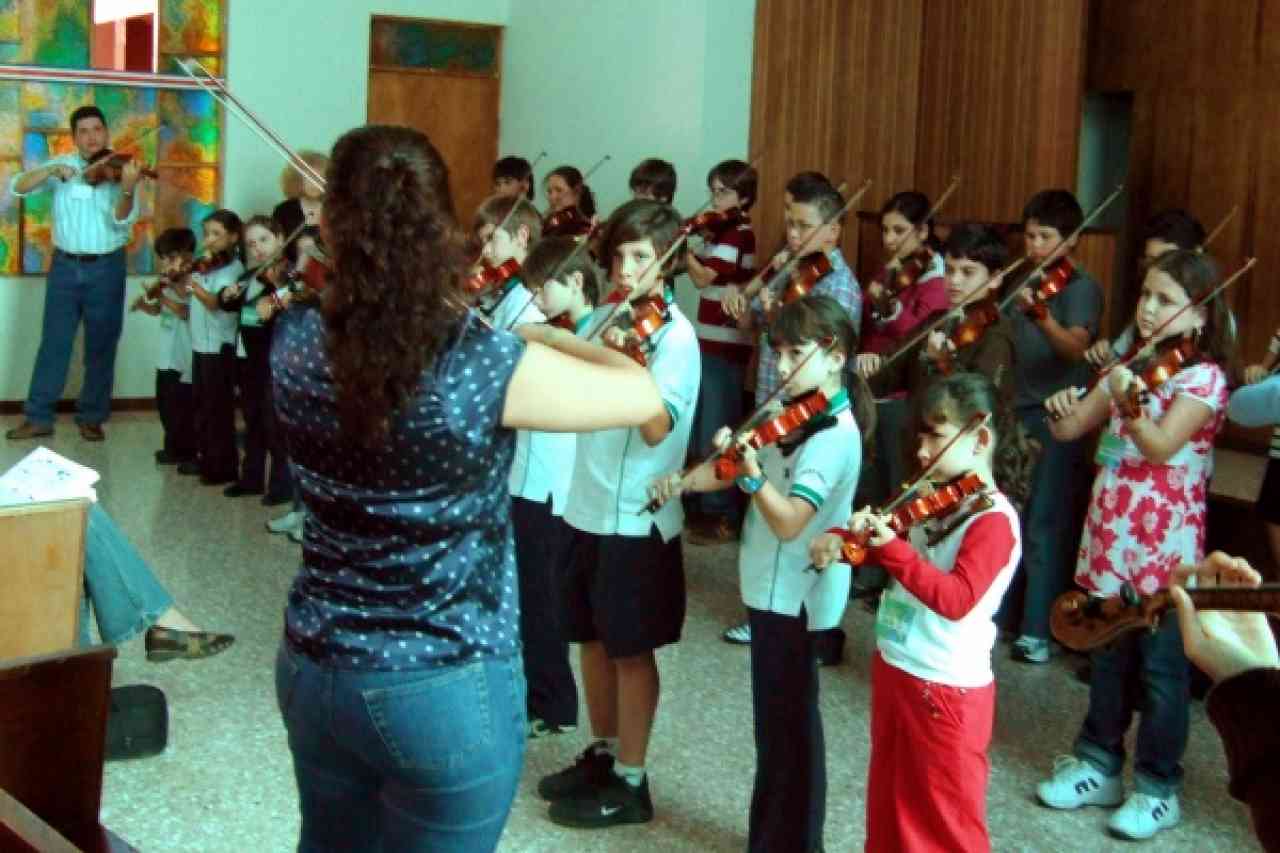
Suzuki play-in.
One evening Marietta held a fiesta for the teachers at her spacious, majestic home. We ate such delicacies as escabeche, barbecued beef and chicken, and the national side dish gallo pinto, a rice and bean dish. Dessert was the traditional keke de tres leches. After such a filling repast what else could we do but put on one CD after another and dance, dance, dance to our heart’s content. The Komar boys joined right in.
It was back to the routine the next day. After classes, the Canadians put on a performance representing our “Viva!” group. We played everything from “Phantom “ to Pachelbel. Latin music is our forte, so after “Tico Tico”, we launched into a medley of Mexican folk songs. To our delight the audience broke out into song and clapped and stomped in time to the beat. One person after another requested that we bring the whole troupe next time.
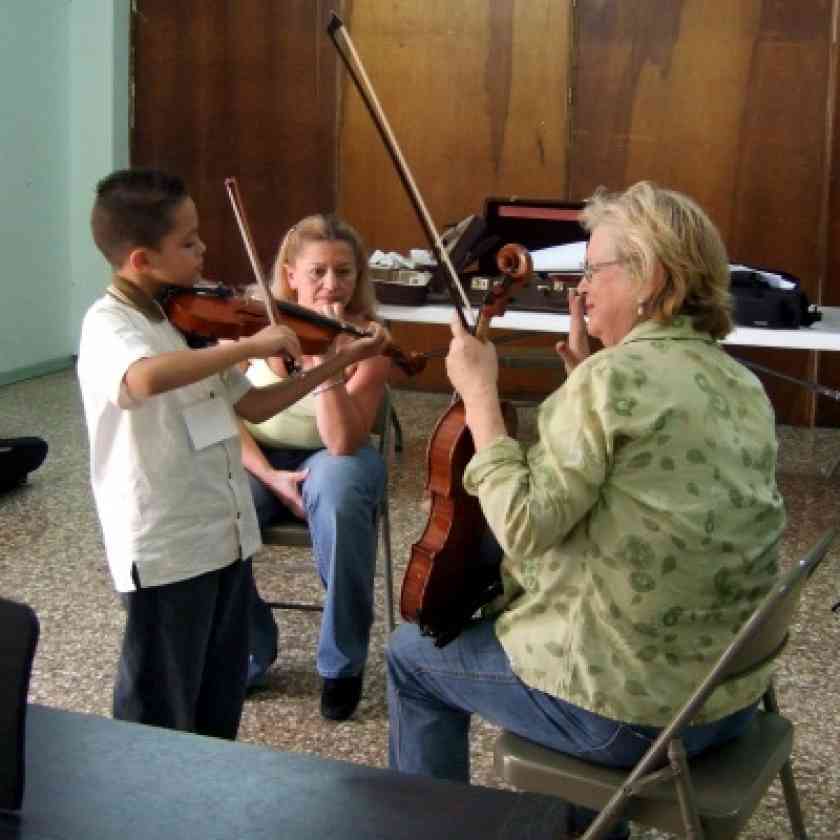
Carmen with Brian in masterclass.
Lidia generously arranged for Jeffrey to perform a formal Recital. This was a performance he’ll never forget as the audience response was amazing. He especially enjoyed receiving a beautiful bouquet of Birds of Paradise. Certainly his Dad and I were popping buttons with pride and gratitude that he had such a special opportunity.
On Sunday, February 10 was the Final Concert. This was the culmination of a week of hard work and hard play. Every group was represented at the formal concert. This was our opportunity to watch Maria Luisa de Rio’s babies in action as they began their first steps in the Suzuki approach to acquiring music. The violists played their pieces. Caroline’s piano students demonstrated their progress for the week. A group of teachers performed “Dark Eyes” and “Wipe Out,” on the spot, with no rehearsal. The morning finished with a disciplined performance of the Suzuki Festival Orchestra, the chamber ensemble that had been working so hard all week under the direction of Gabriella Mora. Cello teacher trainees and students offered a haunting rendition of French Folk song.
Suddenly it was all over and it was time to say goodbye. The boys and I felt the sadness of “adios muchachos” as indeed these wonderful people had become “companeros de nuestra vida.”
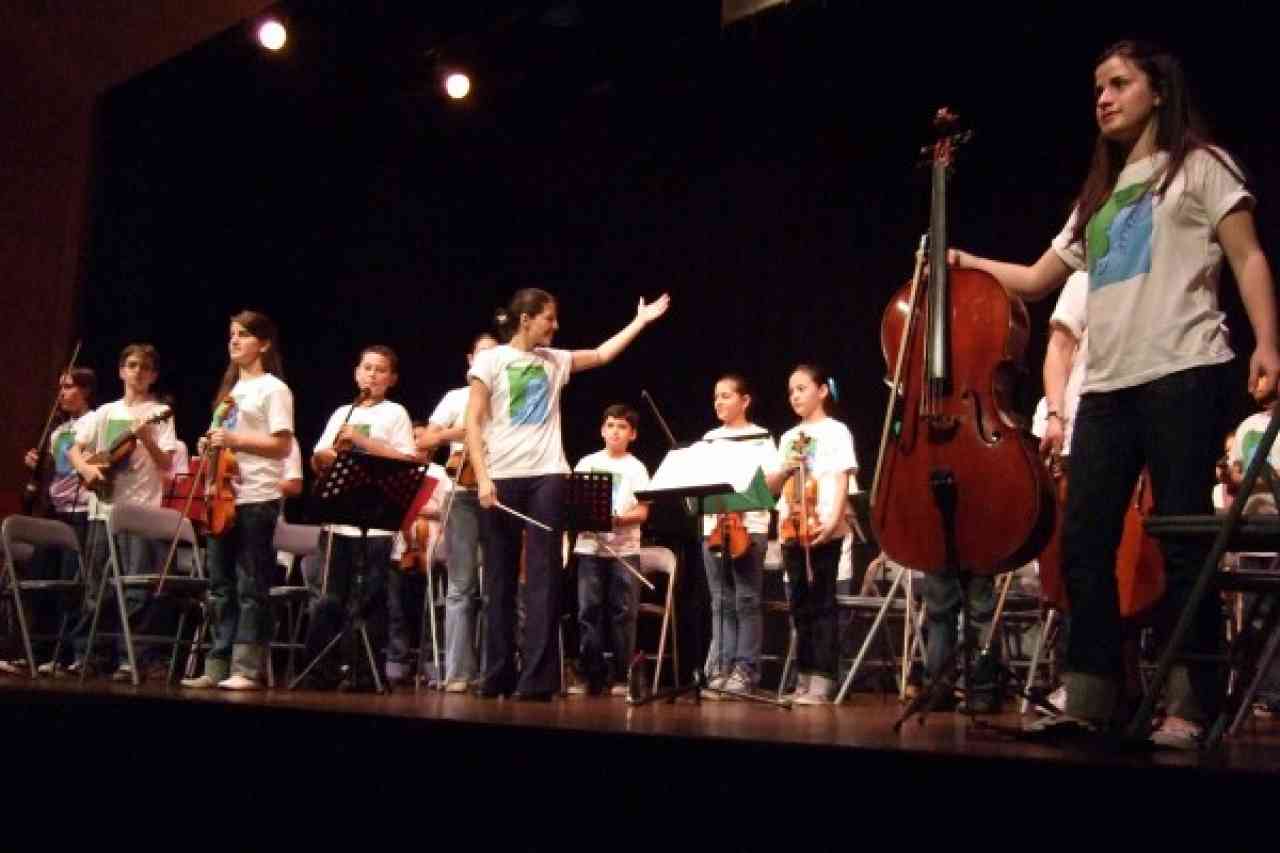
Final concert.

